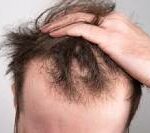Are you experiencing hair loss and wondering what could be causing it? Hair loss can be distressing, but understanding its symptoms, causes, prevention methods, and treatment options can help you take control of the situation. In this blog post, we will explore the various aspects of hair loss and provide useful information to help you tackle this issue. Let’s dive in!
Symptoms of Hair Loss
- Excessive shedding of hair, including clumps of hair falling out
- Thinning of hair, especially near the crown of the head
- Receding hairline or bald patches
- Noticeable decrease in hair density
Causes of Hair Loss
Hair loss can have multiple causes, including:
- Genetics: The most common cause of hair loss is hereditary and is attributed to a condition known as male or female pattern baldness. This type of hair loss is gradual and usually starts with thinning at the temples or the crown of the head.
- Hormonal changes: Imbalances in hormones, such as during pregnancy, menopause, or thyroid disorders, can contribute to hair loss.
- Medical conditions: Certain medical conditions, such as alopecia areata, scalp infections (like seborrheic dermatitis), and autoimmune diseases, can lead to hair loss.
- Medications: Some medications, including chemotherapy drugs, blood thinners, and antidepressants, can cause hair loss as a side effect.
- Nutritional deficiencies: Inadequate intake of essential nutrients, specifically iron, zinc, and vitamins A, D, and E, can impact hair health and lead to hair loss.
Prevention of Hair Loss
While not all types of hair loss can be prevented, certain measures can help minimize its occurrence:
- Adopt a balanced diet rich in important nutrients for hair health, such as proteins, iron, zinc, and vitamins.
- Avoid hairstyles that pull tightly on the hair, such as tight ponytails or braids, as they can cause traction hair loss.
- Protect your hair from excessive heat and chemical treatments, such as blow drying, straightening, or coloring, as they can weaken and damage the hair.
- Manage stress levels through relaxation techniques, exercise, and a healthy lifestyle, as stress can contribute to hair loss.
- Handle your hair gently, avoiding excessive brushing or rubbing when wet, which can lead to breakage.
Treatment of Hair Loss
When it comes to addressing hair loss, it’s important to consult with a hair loss specialist who can diagnose the underlying cause and recommend appropriate treatment options. Some common treatment methods include:
- Medications: Prescription medications like finasteride (Propecia) and minoxidil (Rogaine) can help slow down hair loss and stimulate new hair growth.
- Hair transplant surgery: In cases of advanced hair loss, hair transplant procedures can effectively restore hair by transplanting hair follicles from areas of the scalp with ample hair to areas with thinning or balding patches.
- Low-level laser therapy: This non-invasive treatment involves using red light therapy to stimulate hair follicles and promote hair growth.
- Platelet-rich plasma (PRP) therapy: This procedure involves injecting a concentration of platelets derived from the patient’s own blood into the scalp to stimulate hair growth.
- Scalp micropigmentation: This cosmetic procedure involves tattooing tiny dots on the scalp to mimic the appearance of hair follicles, giving the illusion of a fuller head of hair.
- Nutritional and dietary supplements: Certain supplements, such as biotin, vitamin D, and omega-3 fatty acids, may help improve hair health and growth. However, it’s always important to consult with a healthcare professional before starting any supplements.
Helpful Foods and Products for Hair Loss
What you consume and the hair care products you use can also play a role in maintaining healthy hair. Consider incorporating the following into your routine:
- Protein-rich foods: Include lean meats, eggs, beans, and nuts in your diet as they provide the building blocks for hair growth.
- Foods high in iron and zinc: Iron-rich foods like spinach, lentils, and lean red meat can help prevent hair loss caused by iron deficiency. Zinc-rich foods like oysters, pumpkin seeds, and chickpeas promote hair health and growth.
- Biotin supplements: Biotin, a B-vitamin, is widely known for its role in supporting hair growth. It can be found in foods like eggs, avocados, and salmon, or taken as a supplement.
- Hair loss shampoos and conditioners: Look for products specifically formulated to prevent hair loss, such as those containing ingredients like ketoconazole, saw palmetto, or caffeine. These ingredients may help inhibit the production of DHT, a hormone associated with hair loss.
- Be aware of fake or ineffective products: There are countless products on the market claiming to cure hair loss, but be cautious and do your research. Look for products backed by scientific evidence and positive customer reviews.
In Conclusion
Understanding the symptoms, causes , prevention methods, treatment options, and helpful foods and products for hair loss is crucial for addressing this common concern. By identifying the underlying cause of your hair loss and seeking professional advice, you can determine the most effective course of action. Remember to maintain a well-balanced diet, use appropriate hair care products, and prioritize overall hair health to promote optimal growth and minimize hair loss. Don’t be discouraged by hair loss; instead, take proactive steps to address it and restore your confidence.
“This post is a part of the Coupang Partners activity and we have received a small commission as a result.”
